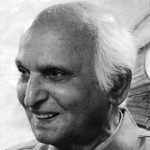
Wayward verses
What a wonderful and enthusiastic researcher one had to be to collect so many wayward verses?
Let us talk today about a wayward creature. Waywardness, of course, is not a preserve of the humankind. There are countless verses in Urdu that merit the tag including some very high standard stuff.
One hears and reads verses that would be credit to whoever they were attributed to and yet like some unfortunate orphans or our urban poor they remain ‘homeless’. I mean you don’t see them in a famous poet’s work or in a celebrated anthology of poetry.
And yet, they are not quite unfortunate either.
Given that you don’t see them in a renowned collection, they have a secure place in the mass memory. A lot of people remember and cite them all the time. Their popularity is not even limited to the poetically inclined, even the literate. All kinds of people remember and quote such verses but if you ask them who these belong to, usually not even researchers of repute can say who.
But once in a while some Good Samaritan does take it upon himself to provide for those lacking a shelter. It is through efforts of such selfless souls that many finally get a roof over their heads. Now, I have received recently a book that does just that kind of thing for Urdu verses.
What a book! What a wonderful and enthusiastic researcher one had to be to collect so many wayward verses? How many books, journals and anthologies did he have to go through to come up with the definitive declarations on who these verses really belong to? The book is called Urdu kay zarbulmisl ash’aar tehqeeq ki roshni mein. Muhammad Shamsul Haq is the researcher, Fiction House the publisher.
The publisher, let me concede, is well known. But who is this researcher? For he is clearly not one of the better known researchers in Urdu literature? Like the verses that are his subject, thus, research is called for about the man. The book provides a brief introduction from which I can tell you that he was born in UP, took up government service in 1944, migrated to Pakistan in 1947 and was a section officer at the Ministry of Health from where he retired in 1980. Gardening is his primary hobby. Of course he is very keen also on poetry.
The person who has collected his research and given it the form of a book is Rafiq Ahmed Naqsh. Born in Mirpur Khas, he has master’s degrees in linguistics, Sindhi and Hindi and is a teacher by profession. He has also translated painter MF Hussain’s Hindi autobiography into Urdu.
There is no telling for how long Muhammad Shamsul Haq was at it, or how many libraries he visited and how many collections of poetry, anthologies and literary journals he had to go through. The fruit of his endeavour is an impressive listing. For each of the verses in his collection, the book identifies the poet, cites the source material and tells us how the popular version varies from the original.
A familiar phenomenon with such couplets is that while everybody remembers one of the lines, the second has been lost. Haq’s research has tracked many of the ‘lost’ lines. The researcher has also mentioned several such lines and acknowledged his inability to find the missing part.
*Translated from Urdu
Published in The Express Tribune.




COMMENTS
Comments are moderated and generally will be posted if they are on-topic and not abusive.
For more information, please see our Comments FAQ